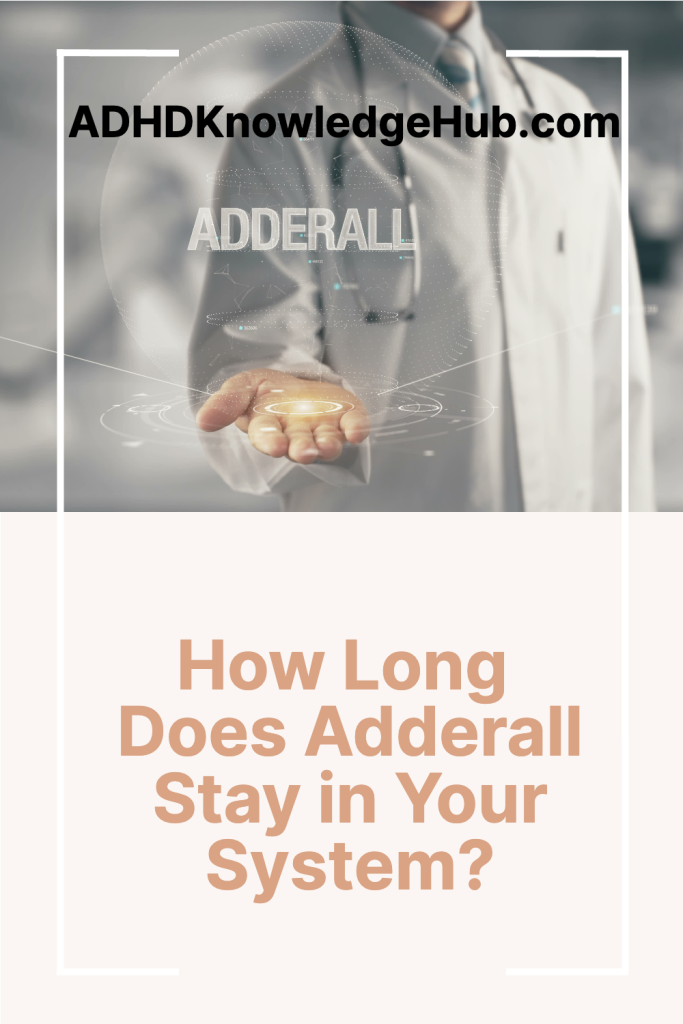How Long Does Adderall Stay in Your System?
Introduction
If you or a loved one is affected by ADHD, the world of stimulant and non-stimulant medications can seem like a vast maze. While Adderall remains a popular choice, understanding its nuances and comparing it to other treatments is crucial. Let’s embark on this enlightening journey together. If you take Adderall let’s explore how long does Adderall stay in your system.
Understanding Adderall – How Long Does Adderall Stay in Your System
What is Adderall?
Often termed the ‘lifeline’ for many with ADHD, Adderall is a combination of amphetamine and dextroamphetamine. These components influence neurotransmitters in the brain, which are chemicals that transmit signals.
How Does It Work?
Picture a bustling city with roads crisscrossing everywhere. In ADHD, it’s as though some roads have blockages. Adderall clears these paths, enabling smoother traffic flow, translating to improved focus and increased energy.
Factors that determine how long does Adderall stay in your system
Factors Influencing Duration
Dosage
The amount matters. While it provides clarity and focus, the residues might linger long after the noticeable effects have faded, sometimes staying in your system for several days. A larger dose doesn’t just amplify the effect; it extends the duration. While a standard dose might linger for about 10-12 hours, higher doses can stretch this period. And even after the effects wear off, residues might remain in your body for days.
Metabolism
Ever wondered why some people can eat anything and not gain weight? Just as how some can devour a pizza without gaining a pound while others glance at a cookie and feel heavier, metabolism plays a role. A swifter metabolism can lead to a quicker excretion of Adderall. Metabolism is unique to each person. A faster one might mean quicker processing and elimination of Adderall.
Age and Health
Our bodies evolve. An older body behaves differently. The metabolic rate might slow down with age, causing medications to stay longer. Likewise, liver health plays a role. A compromised liver function might struggle to process Adderall efficiently. What might be efficient processing at 25 might not remain the same at 45. Older adults and those with compromised liver function could retain Adderall for more extended periods.
Stimulant vs. Non-Stimulant Options
Stimulants
With rapid results, stimulant medications are frontline defenders against ADHD.
- Pros: Immediate effects, well-researched, customizable dosing schedules for daily flexibility.
- Cons: Risk of dependency, possible side effects like increased heart rate, restlessness, or insomnia.
Non-Stimulants
An alternative pathway, non-stimulant options offer different mechanisms of action.
Strattera (atomoxetine)
- Pros: A selective norepinephrine reuptake inhibitor, it offers a more even symptom relief throughout the day. There’s no potential for abuse, and it can be effective for those who don’t respond to stimulants.
- Cons: It might be slower to take effect, sometimes up to several weeks. There’s also the possibility of stomach upset, fatigue, or mood swings.
Intuniv (guanfacine)
- Pros: It acts on the brain’s frontal lobe, crucial for attention, impulse control, and executive function. It lacks the “jitteriness” some feel with stimulants.
- Cons: The slow onset might require patience. It’s essential to maintain a regular dosing schedule, and abrupt discontinuation should be avoided.
Holistic Approaches
Biofeedback and Neurofeedback
These are cutting-edge therapies where individuals learn to control physiological functions. It’s like giving your brain a mirror to self-adjust.
Nutrition and Diet
It’s more than just food; it’s brain fuel. Eliminating potential allergens or irritants and incorporating brain-boosting foods like fish, nuts, and whole grains can make a world of difference.

Remember, seeking advice from healthcare professionals is always the best way to make informed choices for your well-being. Stay vibrant!
Management Tools
- Magnetic Whiteboards: An Unconventional Solution for ADHD Management
- Unboxing the Potential of Automatic Pill Dispensers for ADHD Management
- White Noise Machine: Unlocking Tranquility for Effective ADHD Management
- Understanding The Path of Least Resistance
- Link to The Ultimate Guide to Eye Masks for ADHD Relief
- The Ultimate Guide to Eye Masks for ADHD Relief
- saffron-pixie-sticks
Therapy
Beyond pills, there’s power in conversation. Cognitive Behavioral Therapy (CBT) can offer insights into behaviors and triggers, helping devise strategies to cope better. It’s like having a roadmap for your brain!

Lifestyle Changes
Imagine using daily habits as a shield against ADHD symptoms. Regular exercise boosts dopamine, serotonin, and norepinephrine levels. A balanced diet fuels the brain. Adequate sleep acts as a reset button.
Conclusion
The ADHD journey is as diverse as the individuals it affects. Navigating the world of ADHD isn’t a sprint; it’s a marathon. Whether it’s understanding the duration of Adderall in your system or exploring alternative avenues, each step is progress. Let’s remember, there’s no one-size-fits-all. Personalize your journey, backed by knowledge and consultation. Whether you’re team Adderall, considering non-stimulants, or exploring holistic therapies, the goal remains: enhanced quality of life and optimal brain function.
FAQs
- Is there a ‘best’ treatment for ADHD?
- It’s subjective and depends on individual needs, preferences, and any underlying conditions.
- Are non-stimulant options as effective as stimulants?
- They can be, especially for certain individuals. It’s all about finding the right fit.
- How can I reduce Adderall’s side effects?
- Always consult with a doctor, consider starting with a low dose, and monitor your body’s reactions.
- Do dietary changes genuinely impact ADHD?
- Yes! The brain and gut have a strong connection, and optimal nutrition can enhance cognitive function.
- What about alternative therapies for ADHD?
- Some swear by yoga, meditation, or even art therapy. The key is to find what resonates with you.
Personalization is crucial in the ADHD journey. Consulting healthcare professionals ensures you’re on the right path tailored to your unique needs.

*We may earn a commission for purchases made using our links. Please see our disclosure to learn more.




